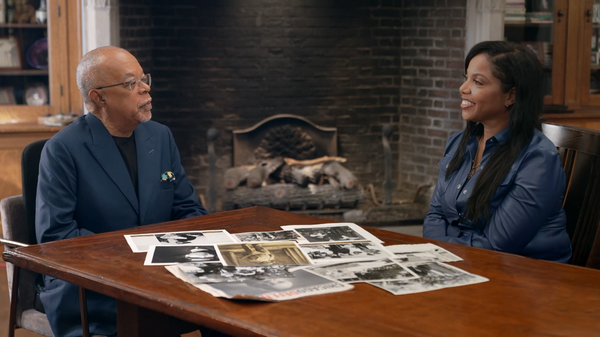An upcoming PBS series will explore a 20th century phenomenon that brought millions of Black Southerners to cities above the Mason Dixon Line, including Philadelphia.
"Great Migrations: A People on the Move" details the mass relocation of Black families to Northern cities between 1910 and 1970. As scholars explain over the four-part series, many Black people found greater economic opportunity, political power and safety from racial violence up north during this period – while still encountering a new form of the prejudices they left behind.
MORE: These 5 documentaries showcase the wide range of Philly's music scene
"Great Migrations" features insight from University of Pennsylvania historian Lance Freeman and Columbia University professor Farah Jasmine Griffin, whose family left rural Georgia for Philadelphia.
"The North always had this connotation of the promised land, even if it was just across the river where one was free," Griffin says in the docuseries. "It took on new meaning with the migration, that these cities would be a place where they would have freedom of mobility. Where they would be free from violence. Where they would be free to actually meet their capacity, their full capacity as human beings."
The Great Migration is usually divided into two waves, the first lasting from 1910 to 1940 and the second from 1940 to 1970. Philadelphia saw an enormous increase in its Black population during the earlier period; over 800 migrants arrived in the city each week in the summer of 1917. New residents soon discovered tensions with the middle-class Black families who had moved years earlier as well as their white neighbors. The hostility exploded during the summer of 1918, when mobs of white men threw rocks into a Black woman's home in Grays Ferry. The incident kicked off several days of race riots that left at least four men dead.
Black Southerners coming to Philadelphia also struggled to find housing, due to a shortage of available units and discrimination.
"When I first got to Philadelphia, if I could have took my three children and turned right around and gone back to Jacksonville, I would've had," Ella Lee, a migrant quoted in the PBS series, said. "It seemed like everybody was living in one house. And I told my aunt, 'Good lord of mercy, is this what you all call living?'"
"Great Migrations" also explores the cultural and political impact that Black residents had on their new homes and an eventual "reverse" migration back to the South. The series is hosted by Henry Louis Gates, who also hosts the PBS genealogy series "Finding Your Roots." It premieres Tuesday, Jan. 28.
Follow Kristin & PhillyVoice on Twitter: @kristin_hunt
| @thePhillyVoice
Like us on Facebook: PhillyVoice
Have a news tip? Let us know.


